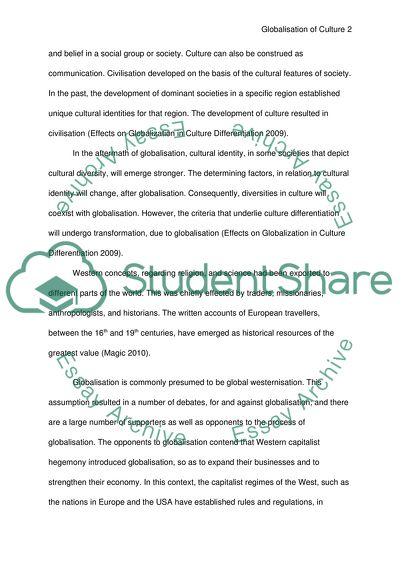Cite this document
(“Does the globalisation of culture effectively mean the westernisation Essay”, n.d.)
Does the globalisation of culture effectively mean the westernisation Essay. Retrieved from https://studentshare.org/miscellaneous/1561867-does-the-globalisation-of-culture-effectively-mean-the-westernisation-of-culture
Does the globalisation of culture effectively mean the westernisation Essay. Retrieved from https://studentshare.org/miscellaneous/1561867-does-the-globalisation-of-culture-effectively-mean-the-westernisation-of-culture
(Does the Globalisation of Culture Effectively Mean the Westernisation Essay)
Does the Globalisation of Culture Effectively Mean the Westernisation Essay. https://studentshare.org/miscellaneous/1561867-does-the-globalisation-of-culture-effectively-mean-the-westernisation-of-culture.
Does the Globalisation of Culture Effectively Mean the Westernisation Essay. https://studentshare.org/miscellaneous/1561867-does-the-globalisation-of-culture-effectively-mean-the-westernisation-of-culture.
“Does the Globalisation of Culture Effectively Mean the Westernisation Essay”, n.d. https://studentshare.org/miscellaneous/1561867-does-the-globalisation-of-culture-effectively-mean-the-westernisation-of-culture.


